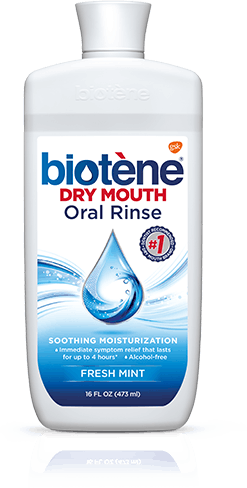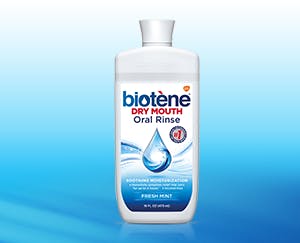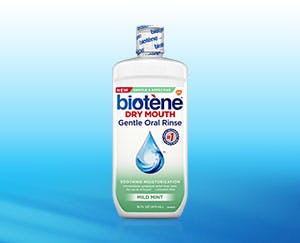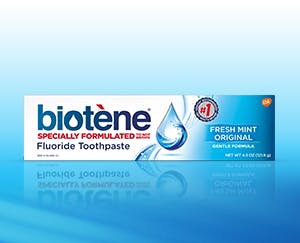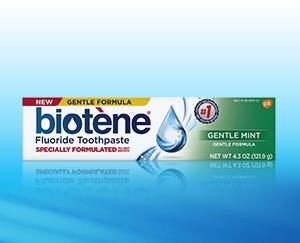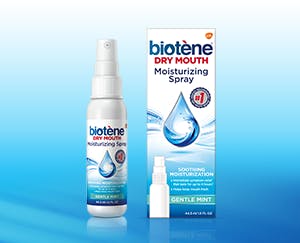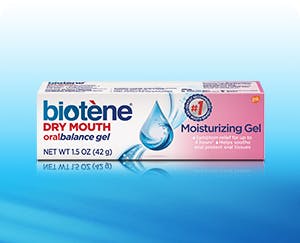Think you have Dry Mouth? Your doctor can help
It’s important to speak to your pharmacist, doctor, or dentist
about Dry Mouth—if not to alleviate the discomfort, then to
protect against the associated health risks, such as gingivitis,
tooth decay, gum disease, and fungal infections.

How is Dry Mouth diagnosed?
There’s no official test to definitively say whether or not you have
Dry Mouth. But, when you speak to your doctor or dentist and
explain what you’re experiencing, they’ll examine your condition
and ask you questions like:
- Do you have difficulty swallowing?
- Does your mouth feel dry when eating?
- Do you have to sip liquids when
swallowing dry foods? - Do you feel there isn’t enough saliva
in your mouth?
Your doctor will perform a
routine examination
To determine if you have Dry Mouth, your doctor or dentist will
likely conduct a routine exam. Here are some things they may do:
- Review your medications, both over-the-counter
and prescription medications, including
antihistamines, decongestants, and diuretics.
- Inspect your lips, tongue, and mouth for
dryness and cracking.
- Review your medical history because
Dry Mouth can be triggered by a variety
of different diseases or conditions.
- Check your teeth for decay. Without enough
saliva, harmful germs that cause cavities are
more prevalent.

Use Biotène® as part of your daily
oral care routine
It's easy to get the moisturizing relief you need with Biotène®. Try rinsing with Biotène® Dry Mouth Oral Rinse. Use as directed or consult with your healthcare provier.
Talk to your doctor to learn more about how to manage
your Dry Mouth symptoms.
